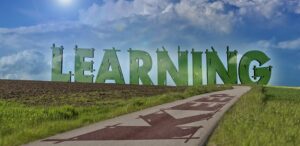
Non-Credit Education Programs Reduce Barriers and Open Doors
Pam Sornson, JD
April 19, 2022
As burdensome as these past two+ years have been, there are some advantages arising out of the turmoil caused by the COVID pandemic. Two hundred years of industrial workplace norms have been upended, and emerging industries and economies are promising jobs and careers that weren’t even in existence in 2019. At the same time, the coronavirus put many people out of work, and now as it recedes, they’re looking to restart their working life in a new occupation. For many, the courses and programs offered through Pasadena City College’s Non-Credit Division (PCC NCD) provide the skills and abilities they’ll need to find work in the new post-COVID economy.
Complete, Continue, Commence
PCCs NCD brings together a broad scope of training opportunities that facilitate the educational goals of all of its diverse population of students. Its programs provide occupational skills that translate to well-paying jobs in any number of businesses or industries. It also offers courses that teach critical life and social skills that many people haven’t yet gained due to adverse life, cultural, or educational challenges.

Complete
These days, many people are looking for a new and well-paying job because the coronavirus either terminated their last one or they didn’t have the skills needed to return to it. The NCD offers occupationally specific training to help any student gain the fundamental skills they need to work in their chosen occupation:
Business Office Systems courses provide foundational training for a variety of office-based occupations, including basic bookkeeping, business math, filing and record-keeping, and basic business software skills (keyboarding in English and Spanish and computer skills).
The artistically inclined will learn much in the Basic Graphic Design course, which includes instruction on graphic production.
Office administrators are always in demand, and the NCD offers courses for both generic Office Clerks and Medical Front Office Clerk.
There is a high demand for document translators, especially in the Legal and Medical fields. Students in these courses also have pathways into other health or legal occupations.
Emerging data suggest that non-credit education programs provide the foundational learning needed in fields that are growing or are already in high demand. These courses facilitate a starting point for learners looking to start their career, rebuild after COVID, or enhance their current lifestyle with a better job.

Continue
Many learners already have the above-listed skills or assets but have other concerns that hamper their education. PCC’s NCD offers programs directed at meeting their needs, too.
America is home to millions of immigrants, many of whom elect to go through the naturalization process to become U.S. citizens. PCC’s Immigrant Education program prepares them for the process by teaching about the country’s history, geography, and civics systems.
Learners with physical, mental, or other challenges will find informative courses in PCC’s Adults with Disabilities program. This multifaceted program offers information and insights to enhance a variety of life circumstances, including functional living skills, music appreciation, and adaptive arts for developmentally handicapped or disabled adults.
Moms and dads also get some much-needed information and support from the Parent Education program. Children don’t come with owner’s manuals; this program offers essential information about how to nurture a developing child.
As a specific category of ‘learner,’ older learners aren’t ignored, either. Many people approaching their senior years seek out new hobbies and skills to enhance their enjoyment of life. The Older Adult program helps them find fun ways to spend their newly free time by offering sewing and music appreciation classes and a ‘Life Review’ class that encourages story-telling and journaling about the paths one has walked through the course of their life.

Commence
It’s never too late to begin any educational program. Many learners who start on these foundational educational paths often gain not just these skills but also the confidence to pursue other life-long dreams as well:
The Adult Basic Education (ABE) program provides the foundational math and language courses needed to attain a high school diploma or, as an alternative to that, a General Educational Development (GED) certificate. Once those are complete, learners can move on to achieve …
… an Adult High School Diploma (AHSD). This program offers all the courses needed to attain a high school education, including classes in math, English, history, sciences, and humanities. Electives provide color and depth to the learning and include creative writing, digital art and design, and ecology options.
Alternatively, the GED program prepares students to take – and pass – the GED exam. Students who take these courses are already familiar with the subject matters – they simply want the added credential of a high school diploma for their resume or job application.
For those whose first language isn’t English, the NCD also offers several series of ESLN classes – English as a Second Language – Non-Credit. One series is a foundational set of courses designed to meet the needs of anyone who needs help reading, writing, or speaking English. Another series, Vocational ESL, provides language training for specific occupations, including one for Childcare providers and another for health care workers. Classes that teach English for general ‘Work Readiness & Communication Skills‘ are designed for people looking to find new or different work.
Workplace readiness is more than just knowing the language. These courses provide training for succeeding in the work world and include the job and career skills that are used every day in every business. Additionally, the program offers specialized training for jobs requiring contextualized English or Math skills, so learners graduate with the skills they need to attain or retain their desired position.
Non-credit doesn’t mean ‘non-valuable.’ As the pandemic recedes and people look to find new opportunities, today’s non-credit programs can provide the fundamental building blocks of both a better education and a better life.


